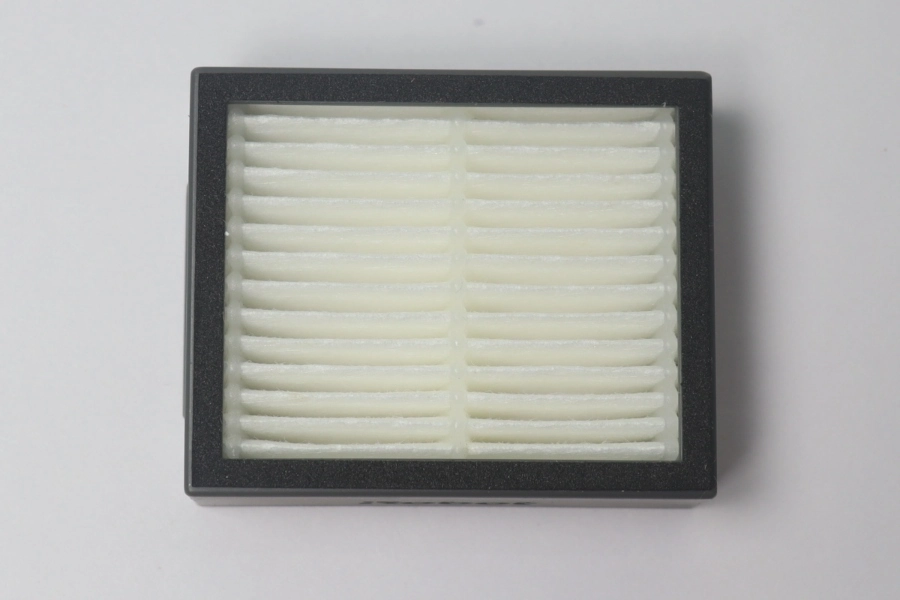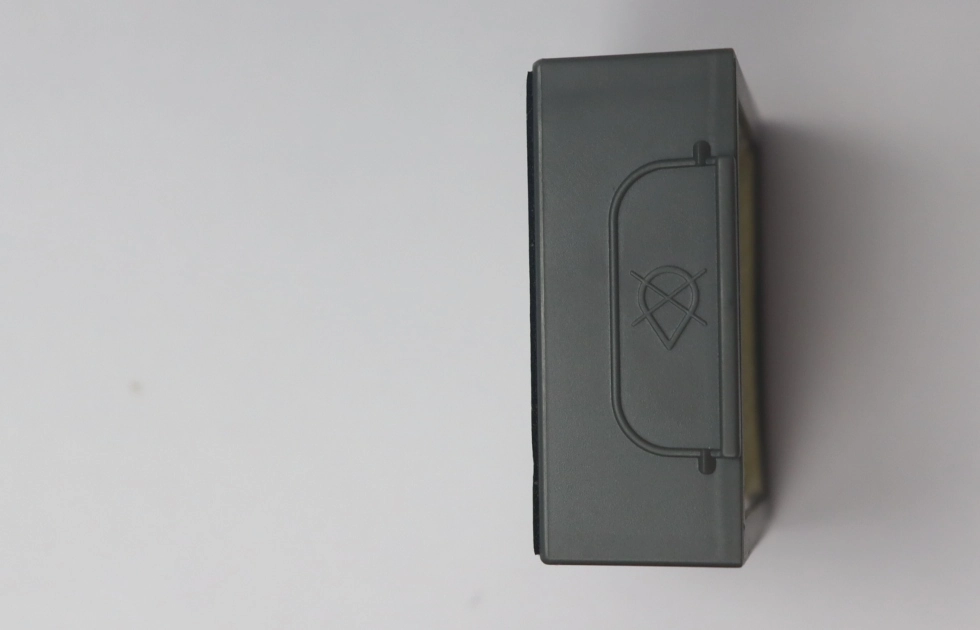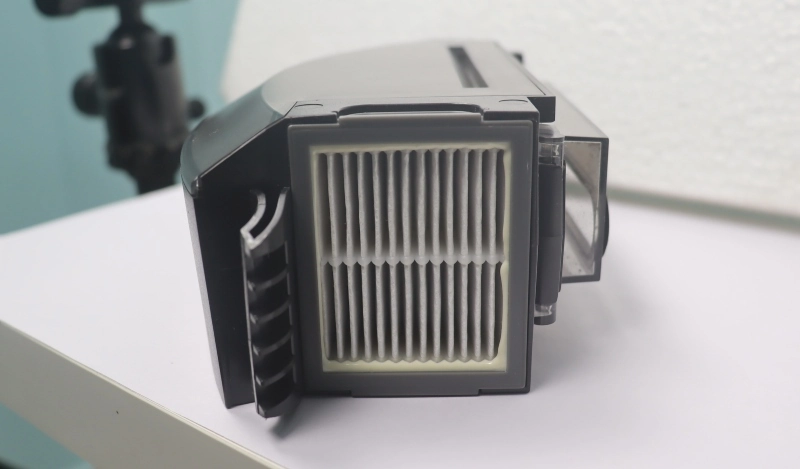
High-efficiency particulate air (HEPA) filters are a type of mechanical air filter designed to trap even the tiniest particles of dust mites, pollen, pet dander, and even tobacco smoke.
It can allegedly clean better than all other filters – the main reason it comes with a rather hefty price tag.
But what is precisely the hype about? What do HEPA filters do, and does your vacuum really need one? Let’s find it out.
All About HEPA Filters
What is a HEPA filter?

A HEPA filter is a type of air filter that can remove over 99.90% of dirt, pollen, microorganisms, and other airborne particles with a size of 0.3 microns.
According to EPA, HEPA filters are made from a variety of materials tangled together randomly and compressed into paper-like sheets.
Materials range from vegetable fibers to synthetic foams, coarse glass fibers, expanded metals, and even coated animal hair, so it is hard to determine their exact composition.
That said, you can rest assured all HEPA filters are hypoallergenic.
Sometimes, manufacturers also add other elements to HEPA filters, including antimicrobial silver linings, activated carbon to reduce or remove odors, as well as pre-filters to screen out larger particles and increase HEPA filters’ lifespan, especially for filters installed in vacuum cleaners.
How do HEPA filters work?
HEPA filters work like all other mechanical filters – they trap air contaminants in their complex web of fibers. Larger contaminants usually collide with the filter and remain blocked due to their size.
In comparison, smaller contaminants are trapped as they travel through the filter. Air circulating through the filter also dissipates the tiniest particles, which will eventually collide with fiber and remain trapped.
Are all HEPA filters the same?
Cutting a long story short, no.
Note: Not all HEPA filters are the same.
Not only may there be significant differences in composition and utilization, but we must also distinguish between genuine HEPA filters and HEPA-type filters.
1) True HEPA filters
Are HEPA filters that have been tested and meet a specific standard? Only tested filters can be called HEPA; however, nothing keeps manufacturers from naming their untested filters HEPA-type or HEPA-like.
Thus, you should pay particular attention to the label when buying an allegedly HEPA vacuum cleaner.
To ensure the filter is authentic HEPA, check the serial number and test results that must be printed on the filter – a true HEPA filter must be proven to trap at least 99.97% of particles of 0.3 microns.
2) HEPA-type filters
Are manufactured in a similar fashion to true HEPA filters and even look the same to the naked eye. However, these filters are not required to meet any specific standards and may or may not trap dust and allergens efficiently.
Indeed, many HEPA-type filters can only trap around 85% of all particles, and most fail to trap particles smaller than 1 micron.
Since they are not authentic HEPA, these filters don’t have a serial number and printed test results.
HEPA-type filters: Why does it matter?
While most healthy individuals won’t notice a real difference when cleaning with an authentic HEPA or HEPA-type filter, using a non-HEPA filter type may affect people with allergies.
Although there have been surprisingly few studies conducted to evaluate the impact of HEPA filters on air quality, in a paper published in the American Journal of Respiratory and Critical Care Medicine, scientists demonstrated that genuine HEPA filters positively impact a room’s air quality.
Sure, simply using a HEPA filter won’t treat asthma or allergy symptoms. Still, they do an excellent job cleaning and getting rid of most allergens.
As mentioned above, newer HEPA filters may have antimicrobial functions or contain active carbon that traps odors and some chemical fumes.
disadvantages of HEPA filters?
Like anything else, HEPA filters also have some disadvantages.
Perhaps the biggest one is the filter cost. Vacuum cleaners with genuine HEPA filters tend to be more expensive than non-HEPA models.
Plus, spare filters are relatively expensive.
Add in the fact that not all HEPA filters are washable, and they might be a costly affair in the long run.
Are HEPA filters washable?
In a nutshell, no. Some vacuum cleaners come with washable or “permanent” HEPA-type filters (note that we didn’t say true HEPA).
These filters can be rinsed with tap water to wash off embedded dirt and grime, but you can’t expect them to trap most allergens.
Cleaning the filters often damages the structure of the fibers, so the more you wash it, the less effective it will be.
Because there is no standard for washable filters, no true HEPA filter is washable. You can clean them if you really want, but keep in mind that you won’t get the same performance.
If the filter is washable, follow these for better cleaning and damage deterrence:
Cleaning Washable Filters
- Unplug the device and carefully remove the filter as per the device manual.
- We suggest the whole process be done outside of the house. Also if you are more allergic, we suggest keeping your mask on and hands with gloves on.
- Rinse it under tap water (not with high pressure), or soak it in water (don’t use excess hot water, lukewarm or normal cold water is fine), and we don’t recommend using any soaps or liquid detergents as few are known to damage the HEPA fibers, also we recommend not to use bristle brushes to clean the HEPA filters, known to damage the fiber sheets, creates holes. After washing it a few times, let the filter air dry on premium cotton towels for a few hours. Make sure it’s completely dry before reinserting it.
- After washing it twice or thrice, let the filter dry by placing it on high-absorbent cotton towels to absorb the water fast, and keep it in an open atmosphere to get dry for some more time.
- Reinstall the filter after cleaning the filter compartment.
Though these are washable, don’t over-clean, as excessive cleaning can reduce their effectiveness. Replace it with a new one after about a year of use.
What about the other then? Though non-washable don’t need all the wash clean and drying, they need slight regular care.
Let’s explain how it is done with our non-washable filter in Roomba.
How to Clean Roomba’s HEPA Filter

You can see in the above image, that iRobot mentioned that the filter is not washable.
Remove the filter from the dirt bin and tap it on the side of a trash bin to remove loose dirt.

Extract the dirt bin and then extract the filter from it. Tap that filter onto the side of a trash bin to remove loose that. That’s it.
Follow this regularly and replace the filter every 3 to 6 months based on how big your use is.
Occasionally, if you see stubborn dirt or hair clinging to the filter, use a vacuum cleaner to remove it. Ensure the vacuum cleaner’s suction is set to a gentle level to avoid damaging the filter. Place a paper behind the filter during vacuuming so that the outside dust doesn’t get into the filter and avoid allowing the vacuum to direct contact with the filter fibers.
For extra hygiene, you can wipe the border frame of the HEPA filter with disinfectant wipes. Be careful not to touch the filter fibers. Also, wipe the vacuum’s body where you insert the filter.
How often do I have to replace the vacuum’s HEPA filter?
Whilst HEPA filters are more expensive than other filter options, the good news is that you don’t have to replace them too often.
How often you have to replace the filter depends on how big your usage is. Generally, if the filter seems dirty even after tapping says it should be replaced. In practice, replacing it every 3 to 6 months is better for efficient cleaning and allergy-free.
Is there anything better than a HEPA filter?
Yes. If you’re concerned about allergies or asthma, you should probably get a ULPA vacuum cleaner. ULPA filters can trap particles as small as 0.1 microns.
Note: ULPA stands for ultra-low particulate air.
ULPA filters trap about 99.99% of allergens, which is slightly higher (0.02%) than the true HEPA filters.
How to know if your HEPA filter is dirty?
Examining and changing the vacuum filter regularly is essential if you want to clean your surfaces properly and keep the vacuum cleaner in good working condition. A clogged filter will have little impact on pollutants, and it may also damage the machine.
The easiest way to tell if your HEPA filter is dirty is by looking at it. Simply open the vacuum cleaner and assess the state of the filter. Clean HEPA filters are white or a light yellowish shade.
If the filter turns a dark shade of grey and there is a lot of debris trapped within it, you should clean or change it.
Do HEPA filters smell?
HEPA filters are made from non-toxic plastic materials and don’t have any particular smell. New HEPA filters may have a faint scent of glue that usually goes away after one or two uses of your vacuum cleaner.
However, if the filter has a lousy chemical odor, it probably isn’t a true, high-quality HEPA filter.
Suppose the filter didn’t have any smell initially, but you notice it has developed an unpleasant, musky scent over time. Replace it.
Conclusion – Are HEPA vacuum cleaners worth it?
Yes. Wildfires, pollen, and regular dirt are all known for polluting your indoor environment.
Having a HEPA filter-enabled device protects you from allergies, asthma, and other serious lung diseases.
Be attentive here; keep in mind that a HEPA filter only works if it’s an authentic HEPA, and you replace it as often as instructed. Otherwise, you may do just as well with a regular, cheaper vacuum cleaner.
